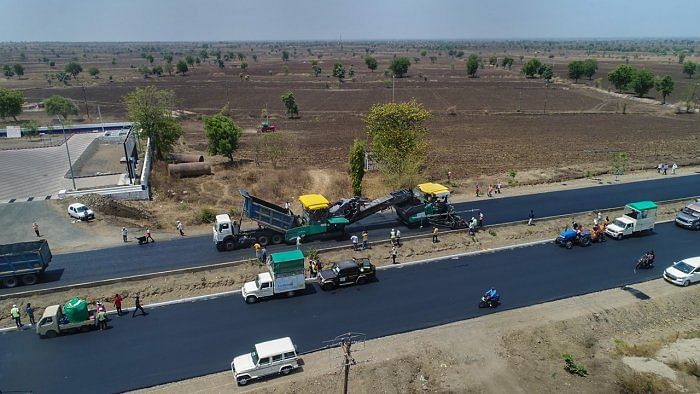
The Ministry of Road Transport and Highways (MoRTH) has set the process in motion to prepare a detailed project report for the proposed Bengaluru-Pune Expressway.
The greenfield access-controlled expressway connecting two major IT hubs - Bengaluru and Pune - will stretch across 699 km and is estimated to cost around Rs 50,000 crore.
The six-lane expressway will be designed to increase the vehicle speed to 120 km. Once completed, it will ensure travel time between two cities to around 6 hours, said an official in the Ministry.
The existing Bengaluru-Pune Highway (NH-4) has 783 km length and at present, the travel time between the two places is around 14 to 15 hours, said the official.
The expressway, which will be built under the Bharatmala Phase-II, starts at Kanjale on the proposed ring road in Pune and will touch the proposed Bengaluru Satellite Ring Road at Muthugadahalli in Doddaballapur taluk. At Pune, the expressway will also connect to the Pune-Mumbai expressway, the official explained.
In Karnataka, the expressway will start from Bommanal on the Maharashtra border in Athani Taluk. It will pass through Athani (Belagavi district) Jamakhandi, Bagalkot, Mudhol, Badami (Bagalkot district) Nargund, Ron (Gadag district), Yelaburga, Koppal (Koppal district), Hagaribommanahalli, Kudligi (Vijayanagara district) Jagaluru (Davangere), Chitradurga taluk, Sira, Madhugiri, Koratagere and Tumakuru (Tumakuru district), Nelamangala and Doddaballapur (Bengaluru Rural district).
In Maharashtra, the highway will pass through Pune, Satara and Sangli districts.
The expressway will have an interchange with other roads at 22 places and a total of 5,205 hectares are required for the project in Karnataka alone. Two emergency airstrips close to Pune and Bengaluru with 5 km length will be built, according to the tentative plan prepared by the Ministry.
The NHAI officials have already briefed the project to Lok Sabha members and other elected representatives of Karnataka in Bengaluru last week.
The highway will pass through several proposed or existing special economic zones in the state, Haveri Lok Sabha member Shivakumar Udasi, who attended the meeting, told DH.
The project was planned to fulfill Prime Minister Narendra Modi’s vision to reduce the logistics cost of the country. India’s logistics cost at present is believed to be 13 to 14% of the Gross Domestic Product (GDP). The PM aims to bring it down to single digits. This project will help the faster movement of vehicles, particularly logistics, Udasi said.
